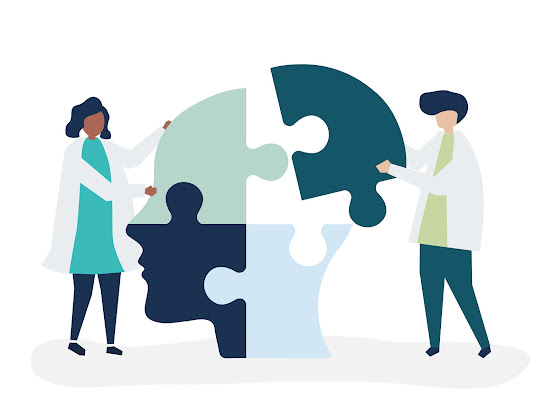Stressed Out or Fired Up? It's All About How You Perceive It
Stress is a concept that is firmly established in our daily lives
and is often regarded as something harmful. It can be both positive and negative,
depending on an individual’s perception of a stressful situation. Therefore, stress
can be of two types, namely, eustress and distress, as put forward by
Hungarian-Canadian endocrinologist Hans Selye (1974).
 |
| Image by Freepik |
The following are some factors that may cause work-related stress: -
- Interpersonal conflict in the workplace
- Poor working conditions
- Work-load
- Job ambiguity
- Job insecurity
- Family demands
- Poor work-life balance
- Bullying and harassment
- Lack of training to do a job
What is Distress?
Most people believe that stress is harmful and affects us mentally, emotionally and physically. This type of stress is often referred to as ‘distress’ because it has a negative impact on the individuals experiencing it. It makes one feel unpleasant, irritated, nervous, angry or impatient. Distress occurs when one perceives that they are unable to cope with stressful situations.
Effects of distress: -
- Emotional or physical exhaustion
- Lower productivity
- Absenteeism
- Substance use
- Withdrawal and isolation
- Depression
- Health issues
- Decreased concentration and ability to focus
What is Eustress?
Stress can also be positive. Positive stress, often
referred to as ‘eustress’ is beneficial as it pushes and energizes one to
achieve their goals and overcome obstacles. “Eu” is the Greek prefix for good,
therefore, eustress means good stress. Individuals experiencing eustress feel
more motivated and can perform well at work. It has a positive effect on one’s
mental and emotional well-being.
Effects of eustress: -
- Motivates to achieve goals
- Helps overcome challenges
- Builds resilience
- Increases concentration
- Improves performance
- Provides a sense of achievement and happiness
 |
| Image by Freepik |
Eustress vs Distress
Just like distress, eustress also feels challenging,
but it’s manageable, and one can cope with it. Eustress usually occurs in those
situations where a person feels confident in their abilities (high perceived self-efficacy),
unlike distress, which occurs when one’s perceived self-efficacy is low. Self-efficacy
refers to one’s belief in their ability to achieve goals. Similar to distress,
eustress can make you feel nervous, cause your heart to beat fast, give you
racing thoughts, and increase sweating. The difference between distress and
eustress lies in how one perceives a challenging situation and the physical
changes associated with it, as mindset is an important factor in determining
distress and eustress. Distress makes one feel overwhelmed, angry, afraid and
irritated. Eustress, on the other hand, produces positive feelings, making one
feel energized, excited, and motivated. An optimistic mindset helps one respond
positively to stressors.
So is it all about how you perceive it?
Humans respond uniquely to stress. Whether one
experiences eustress or distress depends on their subjective perception of the
stressful situation. For example, while some may find work-related relocation
stressful and overwhelming, others may view it as an invigorating and exciting
opportunity, offering a fresh start.
According to the Demands Control Model proposed by
Robert Karasek in the late 1970s, when employees face high demands at their
workplace and have little control over their work, it leads to stress. However,
recent research suggests that the interplay between work demands and control
may be more complex than what was initially put forward by Karasek.
One such study by Toker et al. (2012) found that people who face high demands and have low control over their work display higher levels of blood glucose. On the other hand, those who face high demands and feel they have high control over their work display lower levels of blood glucose and higher self-efficacy. The experience of stress is therefore tied to one’s perception of having control over their work (stressor). Thus, the more an individual believes they have control over a stressor, the higher is their self-efficacy. This increased self-efficacy makes it more likely for them to perceive the stressor positively, resulting in eustress.
However, it is important to keep in mind that despite its benefits, eustress is still a type of stress, and if it becomes too intense or lasts too long, it can transform into distress. In such cases, one should use stress management techniques to cope with the situation.










Can you please give your thoughts about how to deal multiple responsibilities together and also maintaining a calm personality??
ReplyDeleteTo manage your responsibilities calmly, break your work into smaller, manageable chunks and prioritize urgent tasks first. Create a daily schedule and allocate time slots for each responsibility and try your best to stick to it ( personally, I've found this incredibly helpful!). Tackle each task sequentially to stay on track and reach your goals. Practicing mindfulness can also help you to maintain your composure under pressure. To know more about mindfulness, check out my article titled "Why Every Professional Should Practice Mindfulness"
Delete